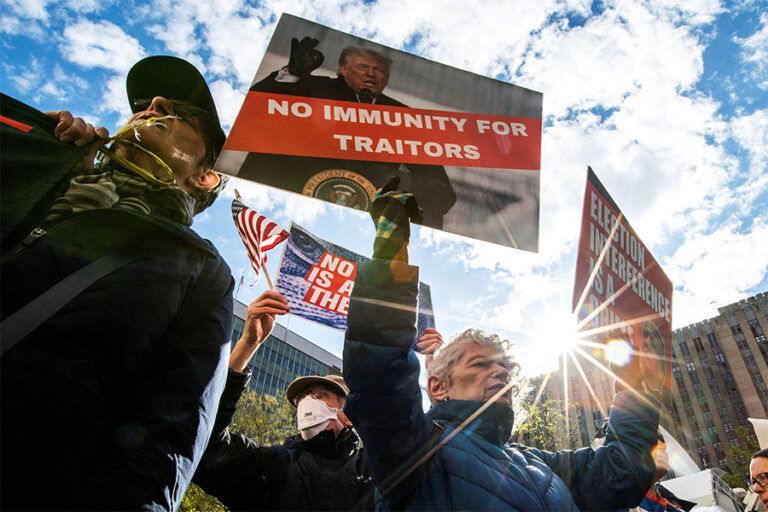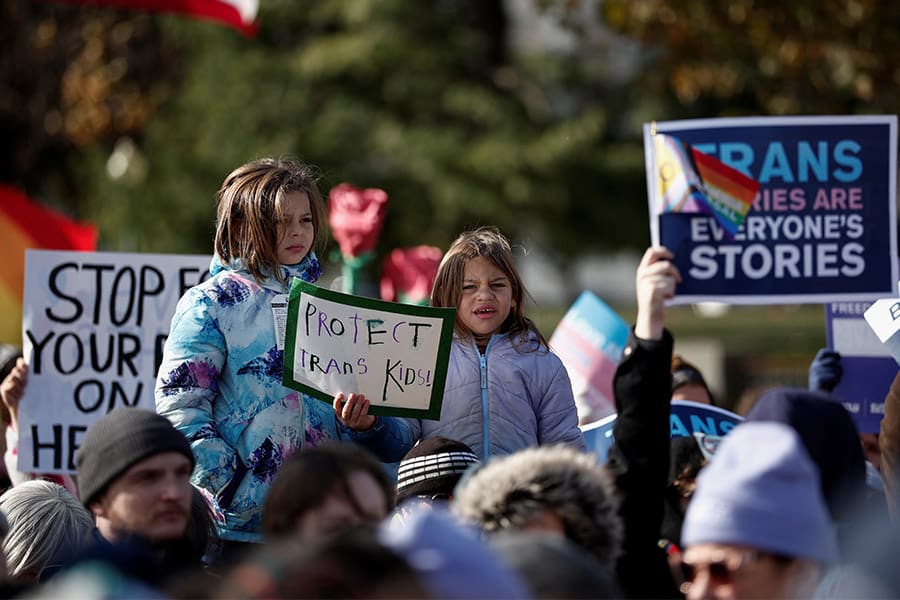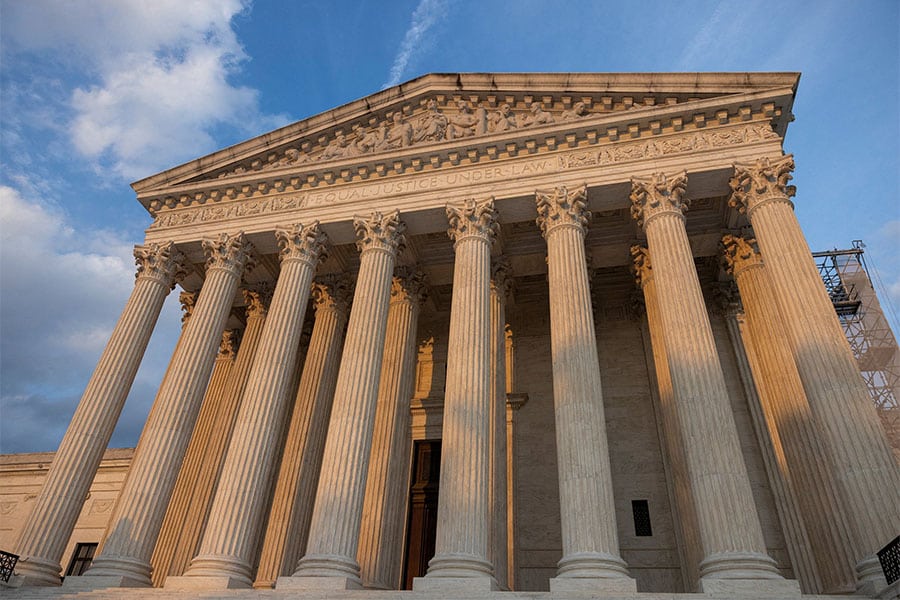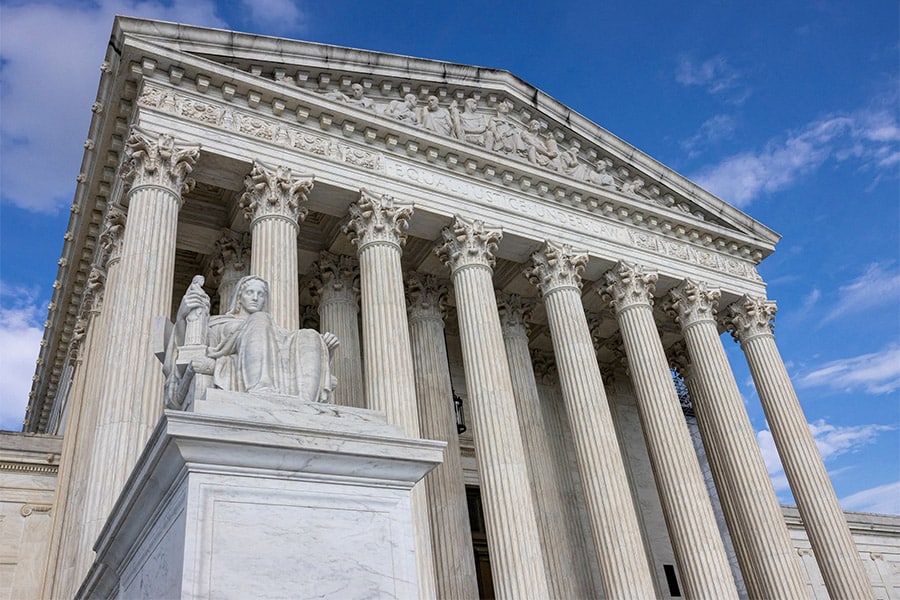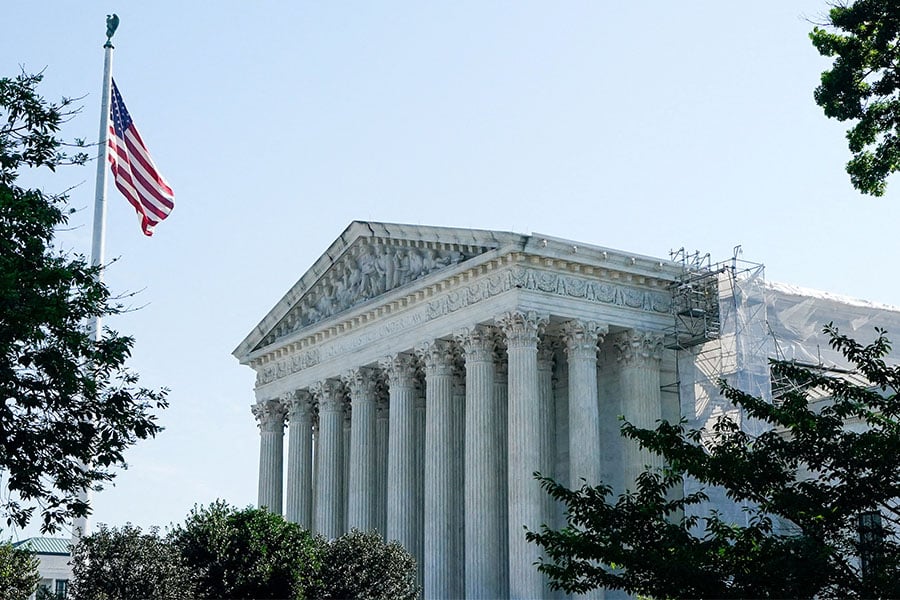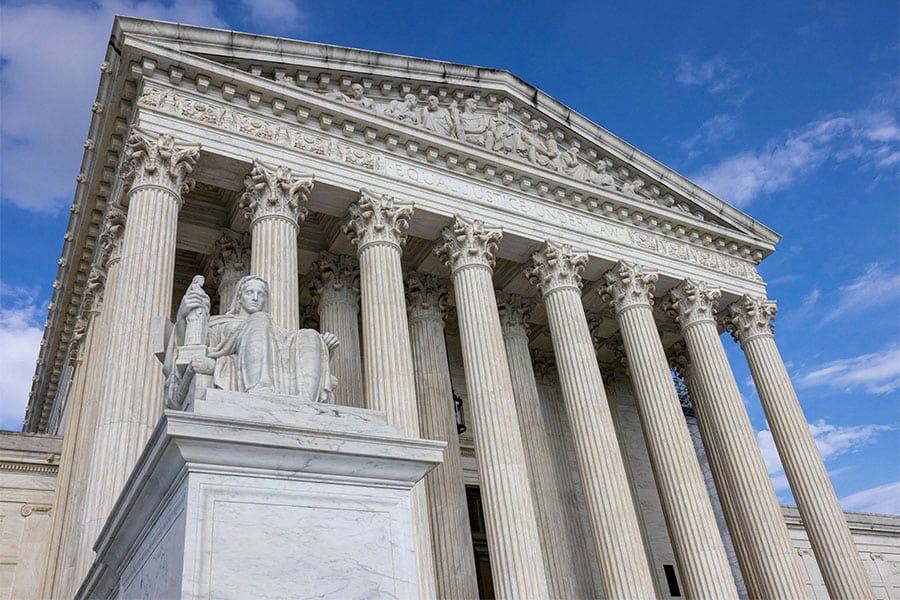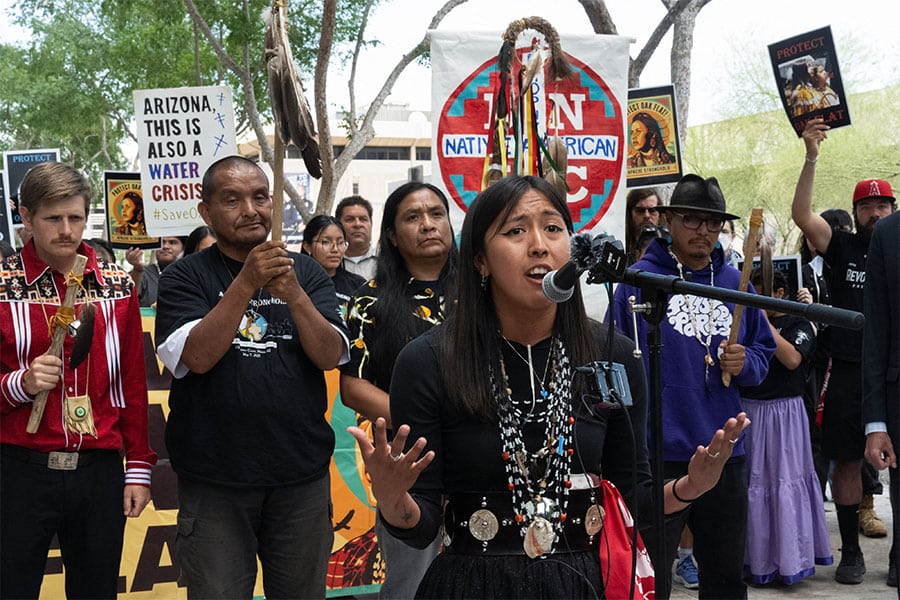WASHINGTON (OSV News) — The Supreme Court heard oral arguments April 25 in a case concerning claims from former President Donald Trump that he is immune from criminal prosecution in a case charging him with seeking to overturn the results of the 2020 presidential election while still in office.
Although justices across the ideological spectrum appeared skeptical of Trump’s lawyer’s claim of absolute immunity from prosecution, the justices could direct lower courts to take up further proceedings in the matter, which could delay Trump’s trial to a date beyond the November election.
Trump himself was not present for the arguments before the high court; he instead was in Manhattan criminal court for his trial in a case concerning his alleged role in paying hush money to an adult film actress in the closing days of the 2016 campaign.
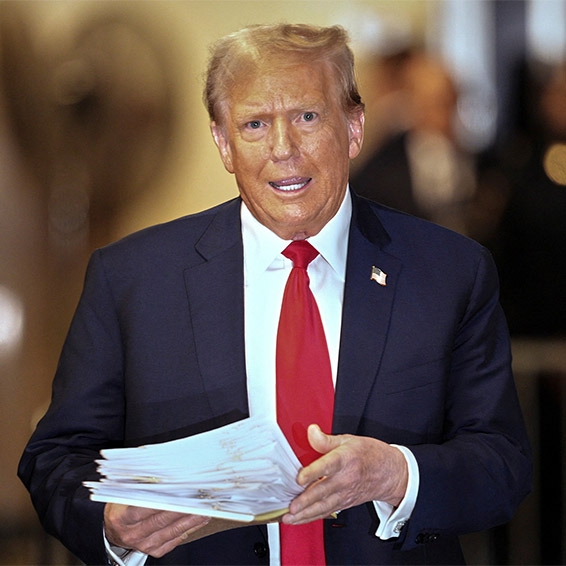
But the case before the nine Supreme Court justices — six of whom are Catholic — could have significant and historic ramifications for the power of the American presidency.
“In this complicated case, the Supreme Court will be faced with deciding whether personal actions can be separate from presidential ones,” Robert Schmuhl, professor emeritus of American studies at the University of Notre Dame in South Bend, Ind., who critically observes the modern American presidency, told OSV News.
“To what extent, is an individual who’s serving as president protected and able to engage in what might seem to be questionable conduct?” he said. “While a president should have a wide berth to maneuver in office, it’s also important to have limits or boundaries.”
In over two and a half hours of oral argument — longer than is typical for Supreme Court cases — the justices appeared to reject the claim that Trump or any U.S. president had absolute immunity from prosecution.
“The arguments were lively, and the justices were clearly aware of the case’s importance and implications for the future,” Rick Garnett, a professor of law at Notre Dame, told OSV News. He said it appeared that “at least a majority of the justices are skeptical about Mr. Trump’s sweeping claims, including his argument that a president has to be impeached before he or she may be prosecuted.”
Justice Amy Coney Barrett, a Trump appointee, appeared to take issue with a key part of the Trump legal team’s argument: their claim that former presidents must first be impeached and convicted by the Senate before they can be prosecuted in criminal court.
“There are many other people who are subject to impeachment — including the nine sitting on this bench — and I don’t think anyone has ever suggested that impeachment would have to be the gateway to criminal prosecution for any of the many other officers subject to impeachment,” she said. “So why is the president different when the impeachment clause doesn’t say so?”
In another notable moment, Barrett questioned Trump attorney John Sauer about specific actions Trump is charged with, and whether they were official acts or private ones — another key distinction in the case and one that could possibly result in the court allowing Trump’s prosecution to move forward, at least in part.
Barrett listed charges including allegations Trump “turned to a private attorney who was willing to spread knowingly false claims of election fraud to spearhead his challenges to the election results” and cooperated with “a plan to submit fraudulent slates of presidential electors to obstruct the certification proceeding.”
Sauer conceded those were private acts, not official ones.
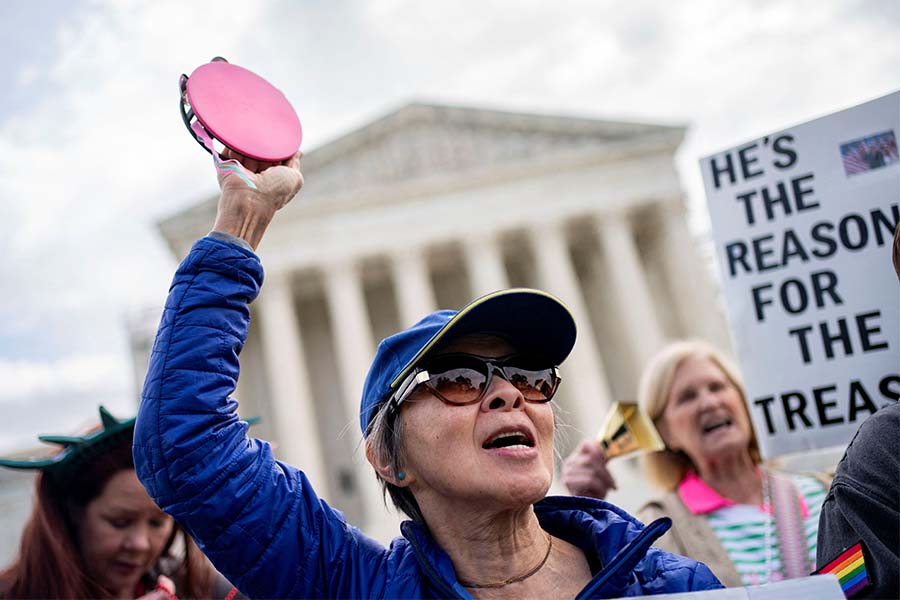
Garnett said that “this case presents tricky questions about how to characterize presidential acts and whether immunity depends on how act’s are characterized.”
“If one wants to conclude that the president is immune from prosecution for ‘official’ acts, then one has to have a method for identifying which acts are, in fact, ‘official,'” he said.
Justices Samuel Alito and Sonia Sotomayor both raised the hypothetical scenario where a president ordered the assassination of a political rival, something Sauer has previously argued could be an official act, and has argued that the president could have immunity from.
“If the president decides that his rival is a corrupt person, and he orders the military or orders someone to assassinate him, is that within his official acts for which he can get immunity?” Sotomayor asked.
Sauer argued that “we can see that could well be an official act.”
Justice Ketanji Brown Jackson questioned Sauer on “how the president stands in any different position with respect to the need to follow the law as he is doing his job than anyone else.”
“If there’s no threat of criminal prosecution, what prevents the president from just doing whatever he wants?” she said.
Chief Justice John Roberts posed a hypothetical, asking if a president who appointed an ambassador in exchange for a bribe could be prosecuted. Sauer argued bribery is not an official act, while Roberts pressed him that appointing an ambassador is.
“So how does your official acts or the official acts border boundary come into play when it’s going to be official, assuming that the president is innocent?” Roberts asked.
But the justices also seemed mindful that the case has implications for the future of the institution of the American presidency, beyond Trump’s alleged actions or his potential return to the White House. Justice Neil Gorsuch said they were “writing a rule for the ages,” while Justice Brett Kavanaugh said, “This case has huge implications for the presidency, for the future of the presidency, for the future of the country.”
The justices, Garnett said, “were aware of the fact, and were reminding the lawyers and the public of the fact, that a ruling in this case affects not only Mr. Trump, but also future presidents.”
“And, they are aware of the concern that a no-immunity ruling could incentivize partisan prosecutions later on,” he added.
The timeline of the court’s decision was not immediately clear but a decision could come as late as June.
Read More Supreme Court
Copyright © 2024 OSV News

